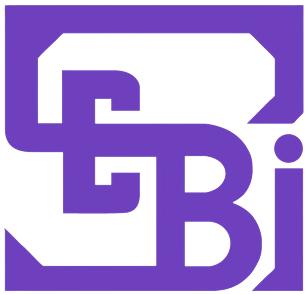

 About Upstox
About Upstox
Upstox was incorporated in 2009, Upstox is the online discount broker which was founded in year 2009 by Ravi Kumar, Raghu Kumar, and Shrini Viswanath. Upstox’s parent company is RKSV securities limited which was founded in 2008 by the same three men. Upstox offers financial services like investment, online stock trading, derivatives trading, currency trading and commodity trading, mutual funds investment, Government securities Investments, advisory services, trading APIs and education content also. The company is headquartered in Mumbai, Maharashtra, India
Upstox offers a variety of services, including:
Upstox provides free demat and trading account with sole owner, joint owner and minor account (Whose age is below then 18 year).
However, in the 2008 crisis, no algorithm could help them crack the US markets then they decided to break from the US market and entered to Indian Market.
 Documents required for a demat account with Upstox
Documents required for a demat account with Upstox- A Scan Copy of PAN CARD required
- A Signature required as per PAN Card on white paper.
- Proof of identification (POI) - PAN CARD, or Voter ID, or Passport, any ID card issued by the central or state government with applicant's photo.
- Proof of Address (POA) - ADHAR Card, or Ration card, or Passport, or Voter ID, verified copies of electricity bills.
- Proof of Address (POA) - ADHAR Card, or Ration card, or Passport, or Voter ID, verified copies of electricity bills.
- Income Proof - 6-month Bank statement, or ITR with income Computation, or Salary Slip, or Net worth certificate or Copy of Form 16 or demat holding you may attach for derivatives segments.
- A-These documents are necessary for the KYC (Know Your Customer) process and to verify your identity and address.
- B- It is important to link your Aadhar number with demat account because it is mandatory by government of India.
- C- PAN and Adhar Linking should be done it is also mandatory by government of India.
| Segment | Charges |
|---|---|
| Trading & Demat Account Opening | Free |
| Annual Maintenance Charges (AMC) | Lifetime Free in Limited period offer |
| DP Charges | 18.50 + 18% GST per script |

| Segment | Charges |
|---|---|
| Intraday | 0.05% or Rs 20 per order which is lower. |
| Delivery | 20 Brokerage on Delivery |
| Intraday | 0.05% or Rs 20 per order which is lower. |
| Future | 0.05% or Rs 20 per order which is lower. |
| Option | Flat Rs 20 per order |
| Currency | 0.05% or Rs 20 per order which is lower. |
| MCX(Future) | 0.05% or Rs 20 per order which is lower. |
| Mutual Fund | Free |
| Call and Trade | ₹50 per executed order |
| Admin Square Offe | ₹50 per executed order |

| S.C. | Equity Delivery | Equity Intraday | Equity Futures | Equity Options |
|---|---|---|---|---|
| STT/CTT (Upto 31st March 2023) | 0.1% on buy & sell | 0.025% on the sell side | 0.01% on sell-side | 0.05% on sell-side (on premium) |
| STT/CTT (From 1st April 2023) | 0.1% on buy & sell | 0.025% on the sell-side | 0.0125% on sell-side | 0.0625% on sell-side (on premium) |
| GST | 18% (on brokerage + transaction + demat charges) | 18% (on brokerage + transaction charges) | 18% (on brokerage + transaction charges) | 18% (on brokerage + transaction charges) |
| Stamp Duty | 0.015% or ₹1500 / crore on buy-side | 0.003% or ₹300 / crore on buy-side | 0.002% or ₹200 / crore on buy-side | 0.003% or ₹300 / crore on buy-side |
| E.F. | Equity Delivery | Equity Intraday | Equity Futures | Equity Options |
|---|---|---|---|---|
| Transaction charges (From 1st April 2023 to 31st March 2024) | NSE 0.00325% per trade on buy & sell. BSE charges vary as per the scrip group | NSE : 0.00325% per trade on buy & sell. BSE :charges vary as per the scrip group | NSE Exchange turnover charge: 0.0019% BSE Nil | NSE :Exchange turnover charge: 0.050% (on premium) BSE : 0.0375% (on premium) |
| Transaction charges (From 1st April 2024) | NSE : 0.00322% per trade on buy & sell. BSE : charges vary as per the scrip | NSE : 0.00322% per trade on buy & sell. BSE : Charges vary as per the scrip group | NSE : Exchange turnover charge: 0.00188% BSE : Nil | NSE : 0.0495% (on premium) BSE : 0.0495% (on premium) |

| SEBI Charges | Equity Delivery | Equity Intraday | Equity Futures | Equity Options |
|---|---|---|---|---|
| SEBI Charges | ₹10/crore | ₹10/crore | ₹10/crore | ₹10/crore |
| Order type | Applicable margin on Equity | Applicable margin on (Index Futures, Stock Future, Index and Stock Option sell, NSE Currency Future, MCX Future) |
|---|---|---|
| Intraday order | 5x | 1x |
| CO/OCO order | 5x | 1x |
| Margin Trading Facility (MTF) | 5x | 1x |
| Note: No Margin for Options buying | ||

There are two types of charges are applied on trading or investing segments through Upstox
- Brokerage charges - Which goes to broker only who provide you trading facility, like Brokerage charges only.
- Government charges - These are multiple kind of charges who are applicable on each transaction who goes to government body.
- STT/CTT - Securities/Commodities transaction tax
- Levied by the Government on Securities and Commodities
- Charged on both buy and sell Stocks - Equity Delivery orders
- Charged only on sell Intraday and F&O orders
- May be more than the brokerage we charge
- GST - Goods and Services Tax
- Levied by the government on the services rendered.
- 18% of (brokerage + transaction charges + Demat)
- Stamp duty charges
- Stamp duty charges are a part of the state revenue system
- Applicable on the trading of Securities and Commodities
- in 2020, uniform stamp duty charges are applicable across all the states in India.
- Read morehttps://upstox.com/announcements/demat-account/revision-in-stamp-duty-rates-on-1st-july-2020
- STT/CTT - Securities/Commodities transaction tax
- REGULATORY Charges - These are multiple kind of charges who are applicable on each transaction who goes to government body and regulatory authorities.
- Transaction Charges
- Charged by exchanges (NSE, BSE, MCX) on the value of your transactions.
- BSE has revised transaction charges in XC, XD, XT, Z and ZP groups to ₹10,000 per crore w.e.f 01.01.2016. (XC and XD groups have been merged into a new group X w.e.f 01.12.2017)
- BSE has revised transaction charges in SS and ST groups to ₹1,00,000 per crore of gross turnover.
- SEBI Charges
- Charged at ₹10 per crore by Securities and Exchange Board of India for regulating the markets.
- DP (Depository participant) charges
- ₹18.5 + GST per scrip (irrespective of quantity), on the day, is debited from the trading account when stocks are sold. This is charged by the depository (CDSL) and depository participant (Upstox).
- Transaction Charges
| Margin Against Demat Holdings (can be used for Futures buy and sell and Options Sell orders only | ₹50 + GST per scrip for pledging ₹50 + GST per scrip for un-pledging |
| Auto Square-off | ₹50 + 18% GST |
| Call & Trade | ₹50 + 18% GST |
| Account Maintenance Charges (AMC)* | ₹0* (Users onboarded before August 2021 might be charged a quarterly AMC of ₹75 + 18% GST or an annual AMC of ₹150 + 18% GST |
| Off-market (to transfer shares between brokers) | 1. Buy orders will continue to be charged at ₹100 or 1.5% of the transaction amount (whichever is lower) 2. 'Invest More' orders will be charged at ₹100 or 1.5% of the transaction amount (whichever is lower). 3. SIP orders will be charged at ₹10 or 1.5% of the transaction amount (whichever is lower) |
| Netbanking charges (Razorpay / Atom) | ₹7 (GST included) |
| Buyback/Takeover/Delisting Charges | ₹20 + GST |
| Offer For Sale | ₹20 + GST |
| Account Opening Fees | 0 |
| API Subscription Charges | Free |
| Interest on Delayed Payment | 0.05% per day on account debit (negative balance) |
| Pledge per ISIN | Rs 20 + GST is charged for every pledge |
| Unpledge per ISIN | Rs 20 + GST is charged for every unpledge |
| Pros | Cons |
|---|---|
| Lowest brokerage Max Rs 20 per order trade in each segment even delivery also | No 0 brokerage in delivery trade |
| Direct investment in mutual fund with no cost | No offline branches, its totally online discount broker |
| Cover Orders available | Bracket order is not available |
| Margin against share is available (MTF) is available. | |
| Available Good till Triggered (GTT) | No personal relationship manager |
| Excellent online trading platform like Website and Mobile App etc. | No research and advisory services |
| Trusted Broker | No monthly unlimited trading plans. |
| No software uses charges. | NRI trading account is not available |
| Segments | Registration Number |
|---|---|
| SEBI Registration No | INZ000315837 |
| NSE TM Code | 13942 |
| BSE TM Code | 6155 |
| CDSL Registration No | IN-DP-761-2024 |
| CIN | U65100DL2021PTC376860 |
Interest : ₹20/day for every slab of ₹40,000 taken as MTFPledging charges : The cost of pledging, as well as un-pledging, is ₹20 + GST per scrip.
 Attention: Don’t share login credentials or OTP to anyone even the Upstox team also.
Attention: Don’t share login credentials or OTP to anyone even the Upstox team also. 

- 9 out of 10 individual traders in equity Futures and Options Segment, incurred net losses.
- On an average, loss makers registered net trading loss close to ₹ 50,000
- Over and above the net trading losses incurred, loss makers expended an additional 28% of net trading losses as transaction costs.
- Those making net trading profits, incurred between 15% to 50% of such profits as transaction cost.
In a minor account, you can’t perform trading tasks like Intraday, Future and Option or other derivatives, Minor account can be used only for investment purposes.
The Child’s minor PAN, minor Adhar, and municipal birth certificate are required with parents or the appointed guardian’s documents.
Major Account is that, where you have full access for your demat and trading account which can be opened post 18-year-old.